
Last January, Blackbird launched our first Flight, a short, thoughtfully-curated collection of stirring, vital poetry and prose, as well as our first Artist Feature, showcasing a gallery of their artwork and an interview with the artist. In each Flight, our Featured Artist also provides the cover image and our aesthetic inspiration for that quarter.
The new model was designed to “fit in your pocket” like a 1990s zine; read with the lucidity and electricity of a gallery walk; and carry forward the legacy of 20-plus years of literary fireworks. We were overwhelmed by the exuberant feedback from our readers. You motivate us to keep innovating as we continue to evolve.
In other news, we’re now accepting submissions of exemplary video essays, craft essays, book reviews, and interviews. Read our submission guidelines for more details.
In this Flight, v22n2, we’ve curated a collection of work that defies tidy definitions and embraces all kinds of renewals. It’s a celebration of uncharted territory, the wilderness in the domestic, the precedent lurking in the unprecedented.
Here’s a brief summary of what’s included:

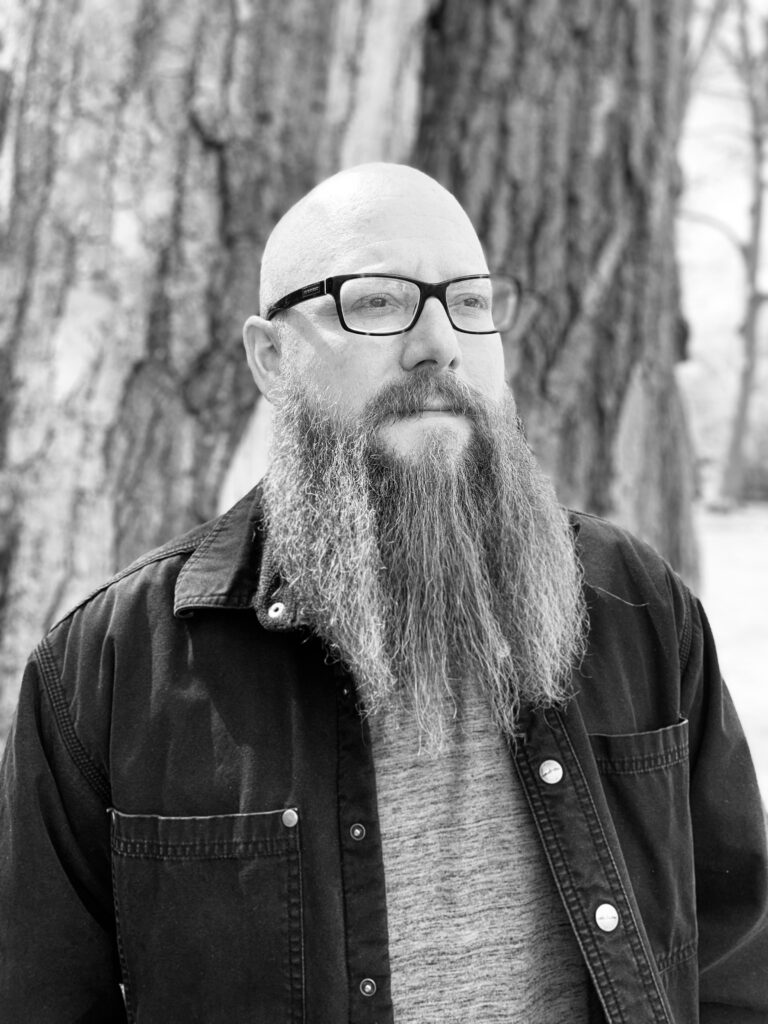
Christopher Warner’s poems “’Desire Itself Is Movement’” and “Flyover Prayer” suspend themselves between the industrial and spiritual, longing and loss. Warner speaks for the Silent Generation, those “lost in the thrumming of the engine’s roar,” and calls out to the “god of empty bottles and distant trains, / and chairs sinking into sandbanks;” inviting the reader to delve into the lives caught between.

Maria Surricchio explores the poetry in so-called “ugly” moments in “The New Beauty” and “Survival Essentials.” In the former, she seeks this beauty in “the slow drift into grace, but find[s] / a back more bent, a narrower / gaze.” “Survival Essentials” also lingers in contradictions with lyric visualization and a deep connection to nature.
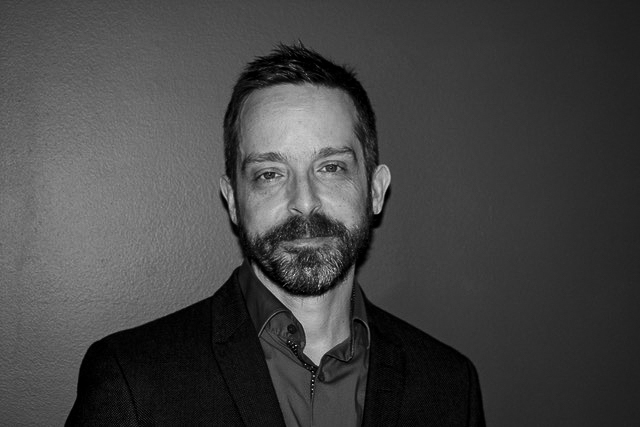
Brian Henry’s translations of the late Tomaž Šalamun’s poems from the Slovenian ask the reader to question ideas of morality: “This one, who furiously tears off / his clothes to be innocent, isn’t / this a pretense?” The poem “I am the people’s point of view” explores the experience of becoming someone else’s perception of you: “more people will see me, with sunrise I become morning,” and “Golem” creates a calm and still setting with beautiful imagery: “I’m seizing the black, silken / chamber of your warm breath, / the temporariness of your life.”
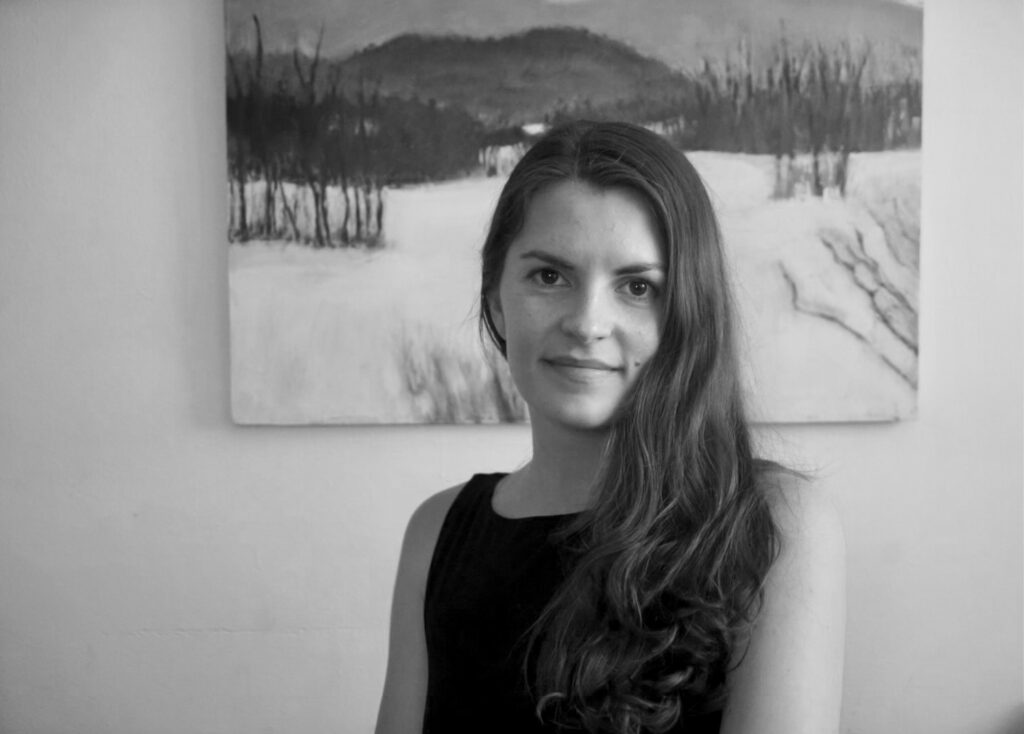
Cora Clark’s poems “Valentines,” “Surfacing,” and “Home for Christmas” explore the violence inherent to love and forces of nature. In “Valentines,” Clark describes an overpowering and deceptive love, like “the lambs in the fields / thought they’d died / with their heads inside their mother’s wool.” “Surfacing” compares nature’s wounds to those borne “each time he loves me.” And, by placing us in the center of an ice storm, “Home for Christmas” reflects upon death and rebirth, brutality, and love: “I’ll drag you too, I’ll say come with me, / nothing will separate us anymore.”

In “You’re the Next Stop,” Sandy Nietling tells the intimate story of a family, their goldfish, and a mother’s cancer treatment—how a crisis can momentarily transform relationships, only for them to revert to familiar patterns as the crisis fades. Nietling hones in on the specific struggles that arise in both motherhood and illness. To be a caretaker and kinkeeper, a mother has to keep her “pain unseen and somewhat hypothetical,” to be “an endless sea of mother.”
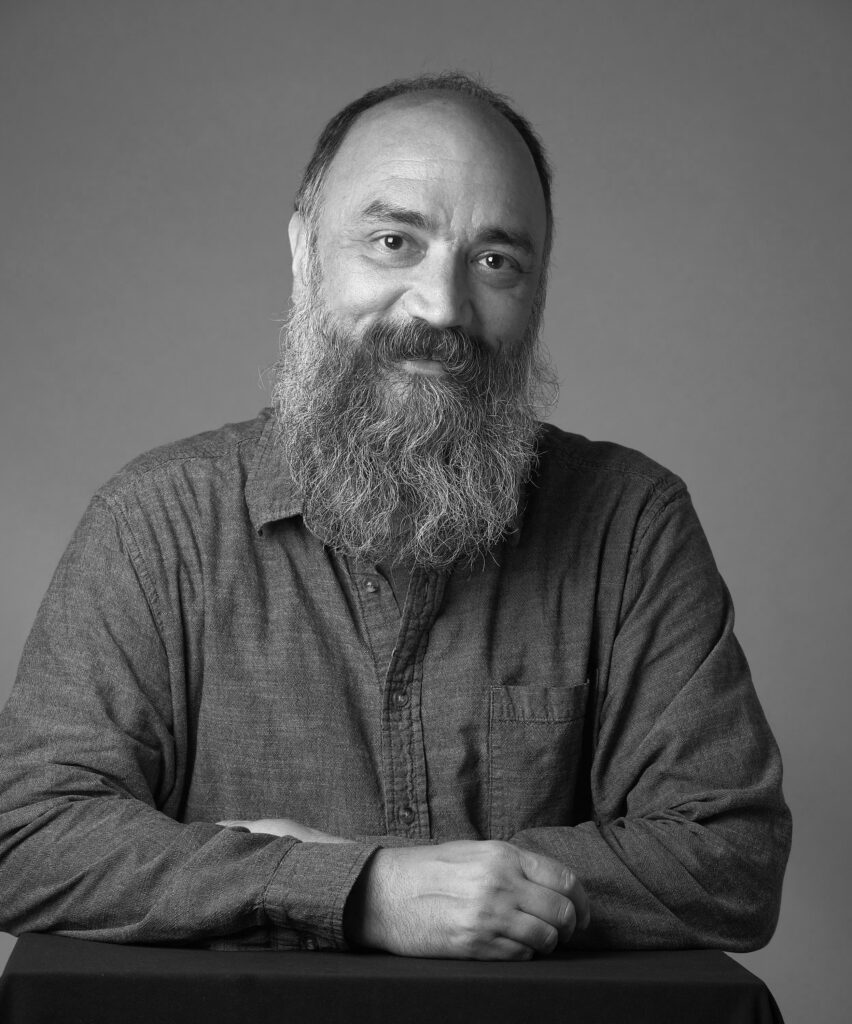
“Birds have four color receptors. Humans three, of which one of mine is defective, making / me colorblind,” Christopher Citro writes in his poem “Birds and Stars Suite.” Throughout, Citro illustrates the similarities between human and bird psychology, exploring how birds too navigate relationships with sensitivity and vulnerability.
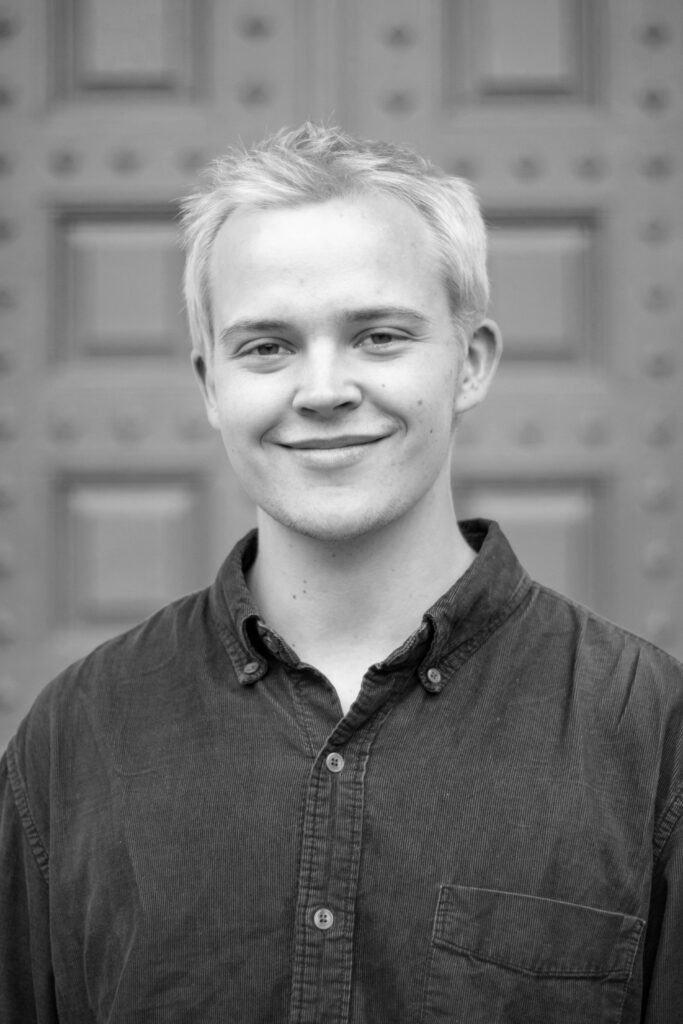
Ira Goga’s “At the Dude Ranch” places readers into an expanse of nature suspended in anticipation, in yearning, in playful but poignant grief: “An owl strikes the long grass / to grasp the mouse beneath. / I wait for any feeling / to grab me.” Goga explores self-imposed limitations and the idea of wanting to be something more. They write, “In the field, I’m apparent / and dangerous, nothing else.”

Julie Funderburk’s poems “Myth in Your Head” and “The Sunflower” conjure images of nature and everyday life alongside figures from Greek mythology. In “The Sunflower” we witness a scene of survival as a deer cuts short the sunflower’s life, reminding us of the Cyclops’s own hunger and demise. “Myth in Your Head” asks the reader to interrogate the mazes within their lives, how “each narrow passage / turns into a question / posed by the next” and the realization that we may be our own jailers.
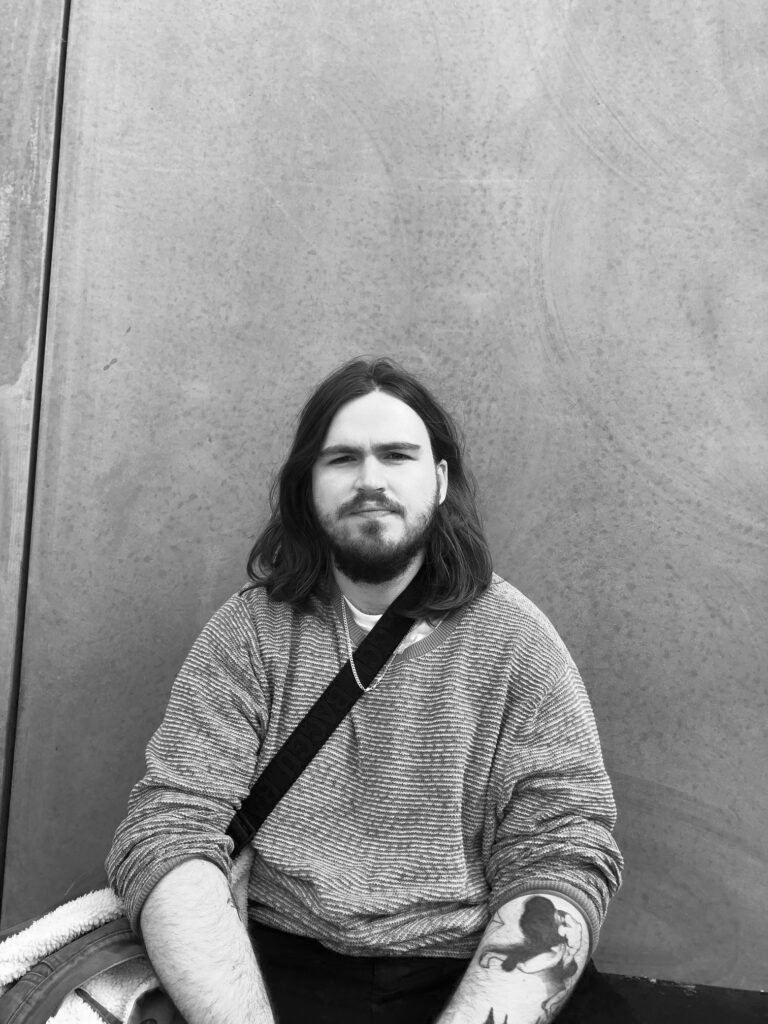
“Matthew Tuckner’s poems “The Decline and Fall of the Roman Empire,” both titled under the same name, focus on tiny details to explore a broader landscape. In one, the natural world of a bug demonstrates human vulnerability: “that the world is only what it is & I am on it / like a tick.” In the other, Tuckner wrestles with mortality with striking language and vivid imagery: “The liver, as it fails, spills over, / a twitching balloon collapsed / against a bed of sternum the skin.”
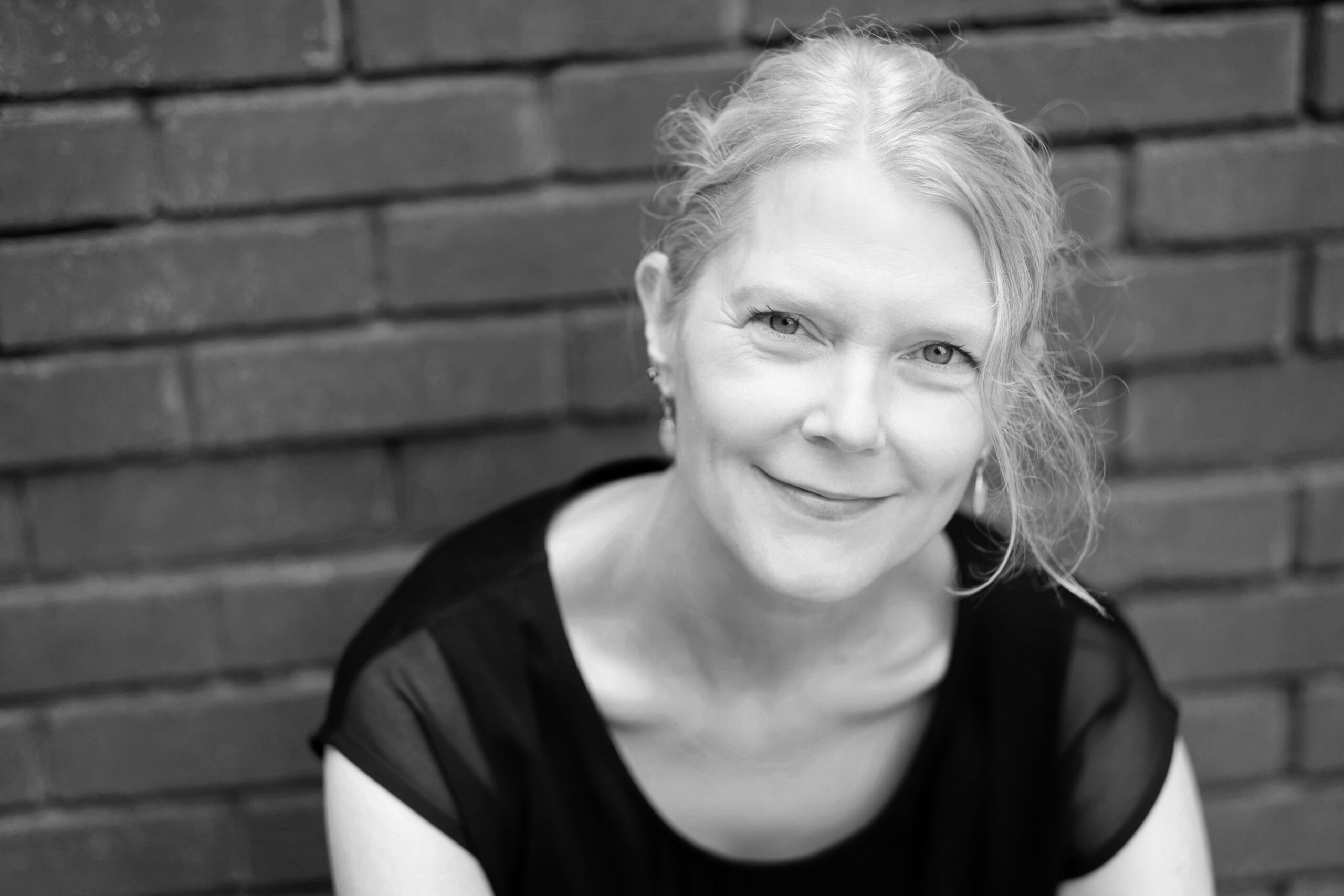
Becky Hagenston’s short story “Fun Guy” navigates the convergence of past and present. In this story memory is both real and imagined, and meaning is made in the interstices.

Constant Laval Williams’s poems echo just above the earth with arrival and transformation. In “Descent” readers must tangle with gravity in order to remember that “falling / is a kind of flight.” In “A Painful Ending” memory molts like a cicada shedding its shell “to experience something gorgeous / for the first time.”

Jacob Boyd’s poems “Be Patient. No Matter What.” and “Dancers” lean into the seemingly insignificant and often confusing moments that color our lives. “Be Patient. No Matter What.” takes place during a road trip and is as much about the importance of patience as it is about recognizing the fragility of love. Overcome with frustration, “he could ruin it all / right now; one word.” In “Dancers,” Boyd describes the moment a deer shatters the mundanity of a work shift, only for it to disappear just as quickly.

Eunkang Koh’s art peels back the masks we wear in contemporary culture, her winking commentary often underscoring our propensity to commodify ourselves in an increasingly digital world. You Are What You Eat and Gold Surprise, for example, playfully hint at our need to package ourselves for consumption. What might we become to be desired? And what is the true nature of the consumer? To Koh’s reasoning, the answer to both questions is untamed.

In February 2024, Blackbird’s nonfiction editor Allison Weissman met with Jacqueline Alnes, the author of “The Fruit Cure: The Story of Extreme Wellness Turned Sour.” Alnes spoke about her deep dive into fruitarianism—a diet consisting solely of fruit. Alnes shared how she intertwined extensive research with personal experience to create a memoir that challenges readers to reconsider the narratives we find ourselves consuming through digital wellness culture.

At Walmart, the narrator receives a text that “Roger just died, suddenly, / and now Walmart is death.” In John Gallaher’s “And I Feel Like the Ocean,” he speaks on the suffocating feeling that not only a sudden death brings, but also from living. “Do you ever get this feeling / when you look around, and you’re like, hey, I’m part of this?” he writes, speaking of the wrongs of the world, be it capitalism or climate change.

In “The Private Frog,” Davis McCombs reflects on the poems and various translations of Matsuo Bashō’s “frog haikus” and how these iterations seek to capture sound. Through the lens of his own experience, McCombs admits that though these frogs appear “almost comically clumsy” as they throw themselves into the water, it is the change which occurs around the sound which captivates readers and translators alike. “The poem IS the splash breaking the silence and from that interruption, meaning ripples out and out.”
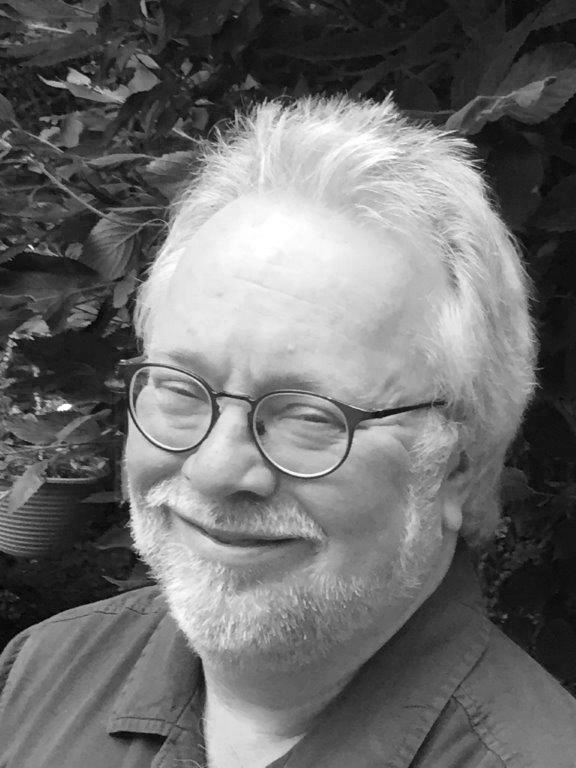
In January 2024, Professor David Wojahn interviewed Brian Henry, the author of Kiss the Eyes of Peace: Selected Poems 1964 – 2014, a comprehensive collection of translated Tomaž Šalamun’s poems. In the interview, Henry discussed the care and complete immersion required to navigate Šalamun’s vast, eclectic body of work. “He was such a special person,” Henry writes, “with such a magnetic presence, and he contained multitudes.”
In reviews: Tribar by Andra Rotaru reviewed by Matt Schroeder.